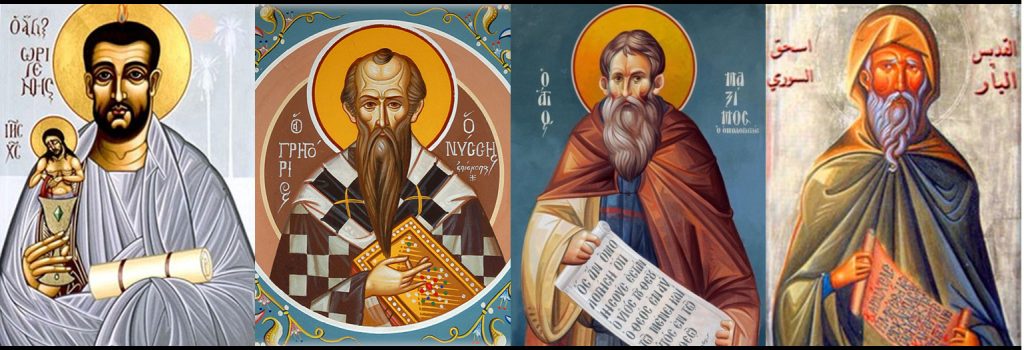I previously described Hart’s theological paradigm and the way it sits behind the argument of his new book, That All Shall Be Saved (2019). There I expressed my frustration that many reviewers have failed to understand Hart’s theology on its own terms and therefore did not advance any criticism of value.
Hart himself is not interested in discussing this topic. He claims to be disinterested in convincing others and asserts that his own opinions ‘will certainly never change’ [4-6]. He also has the ugly habit of replacing reasoned debate with extraordinarily confident assertions that he is right, and that others are therefore clearly incompetent. It’s an intimidating tactic, not least because Hart is an exceptionally able scholar. He has even claimed that his argument is ‘unanswerable’ (a claim repeated by others) and that what is at stake is nothing less than the entire truth of Christianity. In short, if universalism isn’t true then he believes that this proves that a God of love does not exist [3, 208].
On Hart’s terms, perhaps his argument is unanswerable. I’ll let others with more philosophically sophisticated minds than mine work that out. My goal here is to briefly explain some of the broad reasons for which I reject Hart’s argument for universalism.
The Wisdom of David Bentley Hart
My critique of Hart’s view of universalism is very simple. In short:
See to it that no one takes you captive through hollow and deceptive philosophy, which depends on human tradition and the elemental spiritual forces of this world rather than on Christ.
Colossians 2:8
Hart would think that I am an utter moron for saying this. Unsurprising. He believes that Protestant Reformed theology is the product of a ‘morally perverse’ and ‘fundamentalist’ theological tradition. Hart’s rejection of what I regard as orthodox, biblical Christian belief is complete and total. I don’t begrudge him for finding Reformed theology offensive and foolish. In fact, the foolishness of the gospel is itself largely why I find Hart unconvincing.
When the Apostle Paul preached the gospel at Corinth he observed that ‘Greeks seek wisdom’ and that this prevents them from embracing the ‘foolishness of the cross’ (1 Corinthians 1:18-25). Many of Hart’s theological views are predetermined by the ‘wisdom’ of (Greek) pagan philosophy, especially Neoplatonism. This filters out any teaching of the Bible that he regards as philosophically or ethically objectionable.
Part of the problem is Hart’s attitude. He is so utterly certain, so assertively sure of his philosophical insights into the very being of God (!) that anything in Scripture that runs contrary to his views is explained away. He is so convinced of his system that he can say things like ‘even if the traditional Calvinist were right, he would be wrong for believing he was right’ [81]. Hart’s level of utter certainty makes him capable of mercilessly dismissing all exegetical and theological dissent without bothering to discuss the details. This attitude cannot help but cause self-induced spiritual blindness.
To be clear, I am not rejecting classical theism in its entirety, nor all its forms. Far from it! I am objecting to the overpowering role that his metaphysical scheme plays in his engagement with the Bible.
What David Bentley Hart and John Owen have in Common
Allow me a comparison that risks annoying everyone. Most would say that Hart has almost nothing in common with the 17th century Reformed theologian John Owen (1616-1683). Owen stands for an entire system of doctrines that Hart despises, especially ‘limited atonement’, the doctrine that Christ’s atoning work was intended to save the elect alone, not all people.
However, I experienced similar frustrations in reading Hart’s argument for universalism as I did when I first read Owen’s argument for limited atonement. In both cases the writer’s philosophical framework predetermines the outcome before they refer to the Bible. Both of them load the dice. The glasses through which they read the Bible filter out anything that disagrees with their schemes. (We all do this to some extent, which is why humble debate and careful listening is so important).
In Owen’s The Death of Death in the Death of Christ (1647) he begins by laying out his Aristotelian presuppositions, essentially:
1. Any wise worker determines the end goal that he is working toward before choosing the best means to achieve that end
2. God’s goal in creation was to save the elect alone, therefore…
3. Christ’s death must precisely be a means to that end without excess or remainder.

In a book that is supposed to prove the doctrine of limited atonement, Owen defines his terms in such a way that limited atonement is the only possible outcome allowed. Biblical passages that don’t fit are bent to fit this conclusion in ways that I find unconvincing (1 John 2:2; 2 Peter 2:1). Owen’s desperation to read all texts according to his theory is made most more clear in a brief appendix where he even claims that Athanasius (296-373) is properly understood as supporting limited atonement – a truly astonishing claim!
Hart’s book suffers a similar problem. His argument can be reduced to a Neoplatonic doctrine of God’s infinite love grounded in metaphysical simplicity. Assume this and the only conclusion possible is universalism. Hart has loaded the dice. He mostly leaves his assumptions in the background of the book, which is partly why the core of his argument has been so misunderstood. Hart’s book should really have focused on arguing that his version of classical theism is correct. Universalism is simply its necessary logical entailment.
But the Bible doesn’t speak of God in the same way as Hart. In his The Difficult Doctrine of the Love of God (1999), Don Carson observes that the Bible speaks of the love of God in at least 5 different senses (p.17-27) and that we distort the Bible if one of these ‘is absolutised and made exhaustive’ (p.23). But that is what Hart does: he turns the love of God into a necessary metaphysical function of divinity toward all created being. This just doesn’t engage Scripture in any serious way.
Whether we want to prove limited atonement, or universalism, or some other doctrine, the Bible itself must be the standard against which we critique our philosophies and worldviews. Anyone can deploy a set of Bible verses to defend a preconceived idea.
Here my disagreement with Hart comes down to method. I am a Reformed evangelical; Hart is East Orthodox. The way we handle Scripture is very different. In my view we must be careful that grand philosophical schemes (such as Neoplatonist metaphysics) don’t hijack our theology. The Protestant principle of ‘Scripture alone’ (sola scriptura) has never meant that all tradition, philosophy, and the insights of believers through the ages are to be rejected. On the contrary, the Reformers read the church fathers deeply and drew on them extensively. The difference is that Reformed theology attempts to bring all Christian thought into conformity with the Bible, rather than following paths set by speculative metaphysics, however enticing such paths may appear.
Hart’s Approach to the Bible
So how does Hart approach the Bible? Hart treats the New Testament as the fountainhead of a virtually seamless theological tradition extending from Jesus into the late-antique East. Hart is interested in ‘the New Testament, read in light of the proper tradition’ [25], meaning his favourite set of Neoplatonic theologians, mainly Origen of Alexandria (c.184-c.253), Gregory of Nyssa (c.335-c.395), Maximus the Confessor (c.580-662), and Isaac of Nineveh (c.613-c.700) [66, 89, 103-4].

I find Hart’s justification for this move truly extraordinary. He essentially claims that these Eastern theologians are good authorities on the meaning of the New Testament because they spoke Greek and were close to the worldview of the New Testament [25, 138-144, 163-6]. I find this difficult to take seriously. People use the same words differently, especially those in different times and places, and with different levels of training and philosophical sophistication. It seems a very long bow to assume that these later, sophisticated Neoplatonist theologians so closely shared a worldview with first-century Jewish fisherman that they ought to be regarded as authorities on New Testament interpretation. Are they really devoid of significant worldview-baggage that might distort their understanding of the text? This is very bad historical method. Hart’s approach involves a strange combination of appeal to what the Bible allegedly ‘really says’, and anachronistic appeal to his own preferred theological authorities.
And what of the Old Testament? It is fair to ask how Hart’s abstract classical theism relates to the God of Abraham, Isaac, and Jacob; the same God now fully revealed in Jesus Christ. Peter Leithart posed exactly this question in his review: is the (judging) God of the Old Testament good? Hart’s reply: no, he is not good. In fact:
“…in most of the Old Testament [God] is of course presented as quite evil: a blood-drenched, cruel, war-making, genocidal, irascible, murderous, jealous storm-god.”
How strange to hear the author of Atheist Delusions (2009) echoing Christopher Hitchens! Hart claims that the Old Testament ‘slanders the God revealed in Christ’ if it is read as literally referring to him. It should instead be viewed as a collation of evolving Jewish beliefs about God, which can only be considered ‘inspired’ when read ‘spiritually’, by which Hart means allegorically. Certainly there is some allegorical use of the Old Testament in the New (e.g. 1 Corinthians 10:4; Galatians 4:24-26), but it is far from the Apostolic norm. The New Testament is fundamentally about the fulfillment of God’s promises in Christ (2 Corinthians 1:20; Luke 4:21). The Old Testament is therefore properly read as salvation history, not as crass mythology in need of rescue through creative rereading.
Some Key Passages
Near the beginning of Hart’s second ‘meditation’, he quotes several pages of allegedly ‘universalist’ proof texts: Matthew 18:14; Luke 16:16; John 3:17, 4:42, 12:32, 47; 17:2; Romans 5:18-19; 11:32; 1 Corinthians 15:22; 2 Corinthians 5:14, 5:19; Ephesians 1:9-10; Philippians 2:9-11; Colossians 1:19-20, 27-28; Hebrews 2:9; 1 Timothy 2:3-6, 4:10; Titus 2:11; 1 John 2:2, 4:14; 2 Peter 3:9 [95-102].
I’m not sure why Hart thinks this proves anything. What is the context of these passages? What range of responsible interpretive options do context and grammar allow in each case? Hart’s complete disregard of context is perhaps most acutely seen in the way that he splits several of these passages up, presumably to artificially increase the ‘brute force of arithmetic’ behind his argument [95]. Why is 2 Cor 5:14 [top of 96] separated from 5:19 [top of 97]? Why is John 12:32 [98] separated from 12:47 [99]? Why is Colossians 1:27-28 [97] separated from 1:19-20 [101]? These are each one passage, not two. Meaning is largely a product of context. Why not discuss the key passages in context to establish what they say?
Some of Hart’s favourite ‘proofs’ of universalism are texts that refer to Christ’s salvation of ‘all’ (esp. Romans 5:18; 11:32; 1 Corinthians 15:22). His discussion of these texts is far better, but still far too brief and ultimately dissatisfying. Each of these allegedly ‘univeralist’ texts occurs in a context that also specifies the particularity of redeemed people rather than straightforwardly stating that salvation is universal (Romans 5:17; 11:22-23; 1 Corinthians 15:20). How do these two kinds of statements relate to one another in these contexts? Moreover, if Hart is adamant that we always read ‘all’ as ‘every particular instance’, then I struggle to see how he maintains the view expressed in his Doors of the Sea (2003) that tragic events are evil and not good. Romans 8:28 claims that all things work together for the good of God’s people. Hart rejects this idea – it is a core argument of his earlier book. So do ‘all’ things work for good? Or perhaps interpreting the word ‘all’ in Scripture is not so straightforward as Hart claims.
I recently came across Paul Williamson’s Death and the Afterlife (2017), an exegetically rich exposition of biblical passages on issues of death, resurrection, judgement, heaven, and hell. Readers may disagree with Williamson’s views, but it can’t be dismissed as less than a serious scholarly engagement with the text of Scripture. The chapter on hell concludes by observing that many biblical texts ‘stubbornly suggest’ an unending punishment for the wicked despite our protestations (p.162). Serious exegetical arguments like these cannot simply be dismissed. If Hart ever decides that he actually does want to convince us that the Bible teaches universalism then he needs to attend to the details of biblical texts at this level.
Conclusion
Hart’s views demonstrate just why the Apostle Paul needed to warn Christians about how very deceptive philosophy can be. His theology is winsome and attractive in many ways. What stops me following Hart, above all else, is the philosophical muzzle that he puts on the Bible that determines what it is allowed to say. Ultimately Neoplatonic classical theism is his ‘Bible’; the authority against which all others must conform. His system is immune to biblical critique, since he treats everything in it as either an imperfect expression of some aspect of his philosophy, or a still more primitive expression of pagan views which Christianity would gradually outgrow.
When asked in an interview about Penal Substitutionary Atonement, Hart not only claimed that the ideas is ‘absolutely absent from the New Testament’, but stated:
“…even if [Penal Substitutionary Atonement] were found there, could one believe it? Why would one believe it? It’s a very strange belief isn’t it? …the entire picture is based on a series of irrational and arbitrary connections eventuating in an act of meaningless cruelty.”
Here is a Greek philosopher seeking wisdom. Even if a doctrine is found in the Bible, if it transgresses the moral, metaphysical, and logical standards of human beings then Hart believes it ought to be rejected. Hart is so ‘wise’ that God himself is not allowed to challenge his ‘unanswerable’ logic.
I can only conclude that, for Hart, the height of theological revelation is not Scripture, but the work of Gregory of Nyssa. Christianity’s foundational prophet is not Moses, but Plato. Its most theologically seminal Apostle is not Paul of Tarsus (with his doctrines of grace, righteousness, and the inclusion of the gentiles), but Origen of Alexandria with his allegorical interpretation and speculative metaphysical thought. Jesus did not so much come to fulfill the promises of God contained in Israel’s Scripture as to reveal a doctrine of Being, best explained in terms of Greek Philosophy, and already known to virtually all religions through mystical experience. This is not biblical Christianity.
